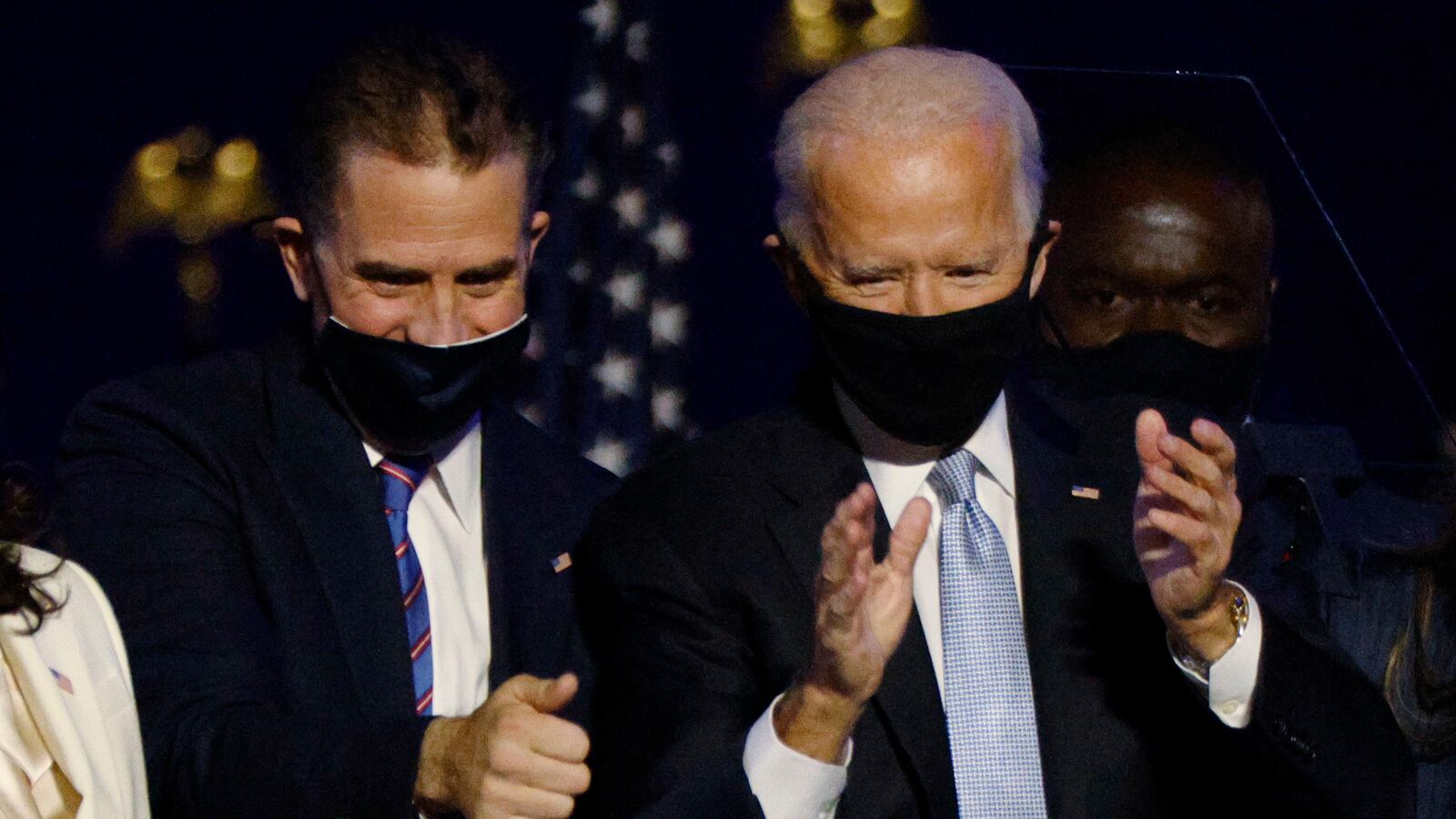Hunter Biden confirmed this week that he is under criminal investigation, igniting a storm of speculation about what that means for him, and for his father’s coming presidential administration.
There’s a lot that the public doesn’t know, and that it’s premature to even speculate about, but there are at least two big things that we do know.
First, that this is an investigation. We know from Biden’s own statement that he is under investigation for what he calls “tax affairs.” While his statement does not say so, numerous reports since he made it indicate that is likely a criminal investigation involving tax evasion and money laundering.
And an investigation is not a criminal case. No charges have been brought and they may never be brought. But based on my experience as a federal prosecutor and defense attorney, I can tell you that it is safe to assume that Biden is what’s called a “target” of the investigation. You can infer that because if Biden was in a different, less dangerous category like being a “subject” or mere “witness,” the language in his statement would likely have included phrases like he was “fully cooperating with authorities.” He didn’t say that.
Instead, Biden said that he was “confident that a professional and objective review of these matters will demonstrate that I handled my affairs legally and appropriately, including with the benefit of professional tax advisors.” Reading between the lines, this strongly suggests that he is not merely a witness or involved in some action that is being scrutinized but rather it is his actions that are being investigated. More tellingly, the phrase “with the benefit of professional tax advisors” is the language of someone preparing to defend against potential criminal charges by arguing that he relied on such advice.
What comes next? Grand jury subpoenas have likely already been issued and FBI agents and federal prosecutors will be reviewing documents and interviewing witnesses. Some witnesses will be subpoenaed to testify before the grand jury in order to “lock in” their testimony. As a target, Biden will not be subpoenaed, and his lawyers will not offer him up for testimony. Instead, they will engage in discussions with the prosecutors in an effort to dissuade them from filing charges. That is because in white-collar criminal cases the question is not “Who Done It” but rather “Was Anything Done?”–meaning most of the debate is over whether a crime occurred rather than who committed it.
The second thing we know at this point is that the Hunter Biden matter will be a trial by fire for Joe Biden’s (yet to be named) attorney general and his senior officials. They will have to be briefed in by the existing case agents, who will be expected to continue working on the investigation as well as by the federal prosecutors working for the current Delaware U.S. Attorney, David C. Weiss. U.S. Attorneys serve at the pleasure of the president and an immediate question for the Biden administration will be whether to ask Weiss to stay on to demonstrate their respect for the independence of the investigation.
An alternative to Weiss staying on would be to have the new attorney general appoint a special counsel to handle the matter, just as Robert Mueller handled the Russia probe. Such a decision would be entirely appropriate in an investigation involving the president’s son but no incoming president will be happy about having a special counsel appointed in the first days of their administration. Moreover, the selection of the special counsel would be a political minefield to navigate. The safer move would be to just ask Weiss to stay on.
Of course, one of the great unknowns facing the incoming Biden DOJ team is whether the origins of the Hunter Biden investigation, which was reportedly initiated under Attorney General Jeff Sessions, are righteous. After all, Trump was so fearful of a Joe Biden candidacy that he got himself impeached over trying to drum up an investigation of Biden and his son.
Lastly, calls for outgoing AG Barr to appoint a special counsel in his waning days are mostly hot air. Barr, whose chief of staff just resigned, has shown little appetite to continue his partisan warfare on behalf of Trump post-election. For Barr, it may finally be sinking in that his second term as attorney general has completely destroyed any credibility left-over from his first term. With his place in history likely to be defined by the more than 2,000 former DOJ officials who called for his resignation and the numerous career prosecutors who resigned rather than follow his orders, Barr may prefer to simply slink out of the Robert F. Kennedy Building at 950 Pennsylvania Avenue rather than make any last-minute shows of bravado.






